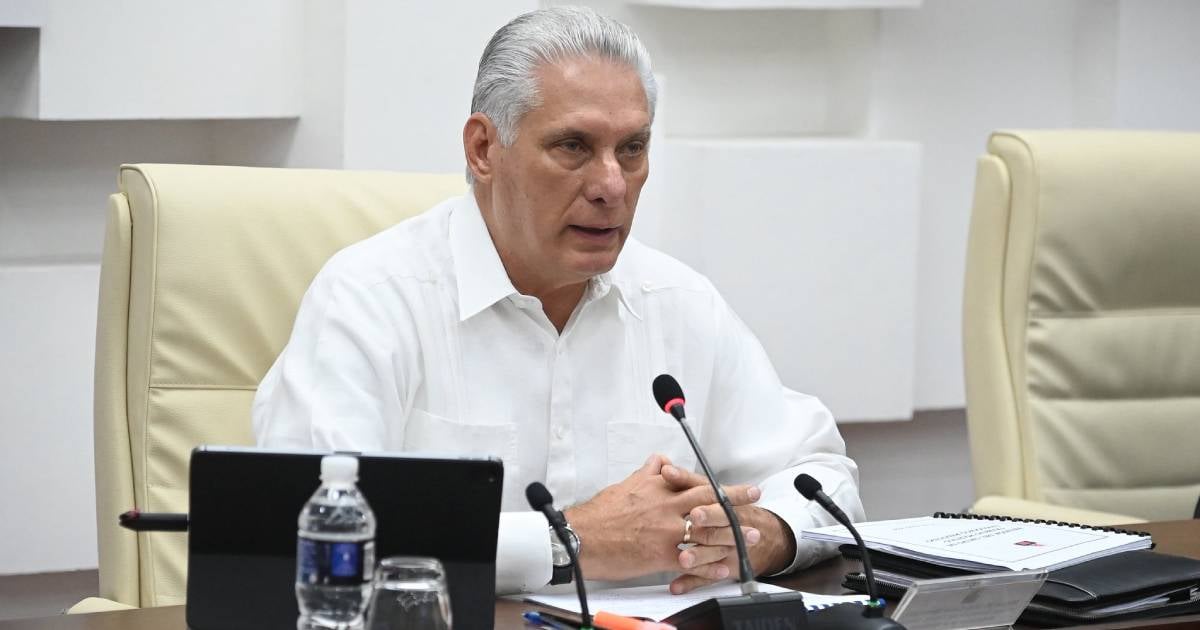Following the recent U.S. sanctions against him, Miguel Díaz-Canel took to social media to express a mix of ideological defiance and political victimhood. "What bothers the U.S. about Cuba is our true independence, the absence of multinational control here, and our free healthcare and education," he posted on X (formerly Twitter).
The Cuban leader's statement comes in the wake of a fresh set of sanctions that, for the first time, directly target him for "severe human rights violations." Announced by the State Department on Friday, these measures bar Díaz-Canel and his immediate family from entering the U.S. The sanctions also extend to Álvaro López Miera, the minister of the Armed Forces, and Lázaro Alberto Álvarez Casas, the minister of the Interior, alongside their families.
U.S. officials state these actions aim to hold accountable those responsible for the crackdown following the July 11, 2021 protests, when thousands of Cubans took to the streets demanding "Freedom!" and faced brutal repression. "The United States will never forget the resilience of the Cuban people four years ago," a senior official told the Miami Herald. Secretary of State Marco Rubio emphasized that visa restrictions on key regime figures are a way to hold them responsible for their brutality.
In Havana, the regime's response was swift. Foreign Minister Bruno Rodríguez labeled the move as part of a "prolonged and ruthless economic war" that won't break "the will of our people or leaders." Meanwhile, Deputy Foreign Minister Carlos Fernández de Cossío dismissed the sanctions as a "so-called sanction" taken "with pride."
Díaz-Canel's tweet attempts to revive the rhetoric of sovereignty, claiming that what truly angers Washington is Cuba's refusal to surrender, privatize, or remain silent. However, his words raise an inevitable question among many Cubans both on and off the island: why does a travel ban to a country they often criticize as an enemy bother them so much? If Cuba is truly "independent," as he claims, why are these measures impactful?
While Díaz-Canel touts free healthcare and education as achievements of the system, he remains silent about the hundreds of political prisoners, families torn apart by forced migration, and the humanitarian crisis pushing thousands of Cubans to flee. Meanwhile, the U.S. has updated its List of Prohibited Accommodations in Cuba, adding eleven new hotels linked to the military conglomerate GAESA in an attempt to cut off direct financing to the repressive apparatus.
The designated leader by Raúl Castro received support from regime loyalists on his post, but it also triggered a wave of outrage among citizens who endure the island's harsh realities. "Brother, seriously, you talk about healthcare and education when there are no medicines and institutions are falling apart... the charade can't last forever," replied a user identified as @charles_ghost7.
"What independence? If you can't even provide milk for children. What independence are you talking about when you extort Cubans on the island to survive on remittances from abroad? By the way, both education and healthcare are terrible... among the worst in the world," criticized Abel Cartaya (@AbelCartaya).
"Is this a joke, right? What education and healthcare are you referring to? What independence? People can't endure more misery and hunger. Just leave and let Cuba be free. Homeland and Life!" wrote Daniel Ramírez V. (@Daniel8804RV).
Four years after the July 11 protests, the sanctions serve as a reminder that the international community, at least from Washington's perspective, hasn't forgotten the events. Organizations like Justicia 11J have documented over 1,500 detentions, many followed by summary trials and lengthy sentences.
Díaz-Canel's post may aim to rally his base, yet it also highlights the regime's growing isolation, its repetitive narrative, and its disconnect from a citizenry fed up with empty promises.
Understanding U.S. Sanctions on Cuba
Why did the U.S. impose sanctions on Díaz-Canel?
The sanctions were imposed due to severe human rights violations, targeting Díaz-Canel and other key figures in the Cuban regime responsible for the crackdown on protests.
What is the impact of these sanctions on Cuban officials?
The sanctions bar Díaz-Canel and other designated officials, along with their families, from entering the United States, aiming to hold them accountable for human rights abuses.
